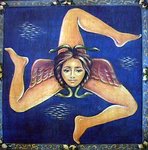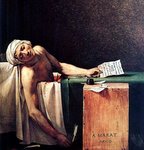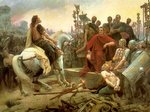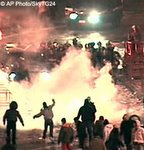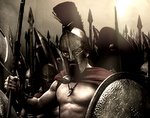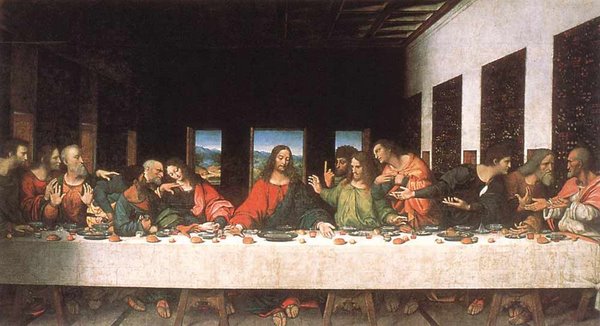
With the recent death of populist leader Benazir Bhutto in Pakistan, a friend and I were discussing politics, dictatorships, and Democracy. It really got me thinking about what Democracy is, and what place it has in our modern world. The following are a few of the ideas I have. None are very well-thought out arguments, so bear with me.
-The word Democracy is Greek for "people power" or something of the sort. Though most thinkers have interpreted this as "political power for the people," there are certainly other ways to look at it. I personally interpret it to mean "economic power for the people." Thus, the ideal that I think we should be striving for is not the expansion of the franchise, but a situation where regular people hold real economic power over their own lives, and where the working classes hold real economic power over the nation. Many people would rather have money than vote, and only when economic power is more widely distributed and de-centralized can any true "Democracy" ever exist.
-Churchill once said that the greatest argument against Democracy comes from talking to the average voter for a few minutes. He is actually completely right about that. How does the rule of the populace make sense when the populace is ignorant? How does it make sense that a Political Scientist gets the same one vote as some inbred redneck? (I'm thinking Noam Chomsky and Britney Spears right now) Sure, everyone deserves equality both under and before the law. I think everyone also deserves some sort of economic parity. However, universal suffrage clearly makes less sense when you look at it closely. Even a simple test asking voters about the parties and candidates involved would weed out the ignorant who foul up the election results. How else could George Bush or Stephen Harper be elected if not through voter ignorance?
-Voter ignorance is usually surpassed by voter indifference. What is the point of allowing the entire population to choose their leaders when only a fraction of them actually bother voting? Unless a significant majority of a nation turns out to vote, it's kind of ridiculous to call it a democracy. I see only two solutions to this: either limit the franchise, or make voting a civic duty like taking the census is.
-Something that always scares me is the tendency for Democratic nations to elect leaders who subsequently turn into tyrants and oppressors. How exactly can anyone defend the idea of Democracy when the unjust prejudices of the majority of a nation's ignorant and self-centred citizens elect a man (or woman, though not often) who persecutes part of that very nation's population? Just because the majority is racist, or sexist, or whatever, does not make it acceptable. Unfortunately for proponents of Democracy, the system itself tends to perpetuate and legitimize oppression and persecution against minorities when it is in the interest of politicians to pander to the ignorant and evil. Tyranny of the masses indeed.
-What is better for a nation: A corrupt and inefficient/unjust Democracy, or an effective dictator? I personally would argue for the latter. The ideals behind Democracy are no substitute for good government, regardless of the form that government takes. Yes, I understand that dictators have more of a chance of becoming tyrants than elected officials, but that does not mean that Democracy is always better. Every nation is different, and just because one form of government works in one place, that doesn't mean it will work in another. Democracy is not always the best option available.
-Someone once told me (and he knows who he is) that a Monarchy is never legitimate since it does not reflect the will of the people. While often he would be correct, it is important to understand that this is not always the case. I agree that all forms of government derive their legitimacy from the approval of the population, yet a vote is not the only form of approval. The example I have in mind here is with traditional native societies in countries that have been colonized. Their traditional Monarchies or Tribal Councils are often better for them than imposed Democracies. The best example here is that of Hawaii. Look at how terrible the annexation of Hawaii by the United States has been for the native population. In cases like Hawaii's, Democracy cannot be reasonably defended.
-The Athenians had a practice that I would really like to see revived: the Ostracism. Essentially, the populace would vote to kick one leading citizen out of the city for a year. Imagine how cool that would be. Who would you kick out?
Anyways, that's what I've got for now. Don't get me wrong, I'd still prefer to live in a Democratic nation rather than any other (as long as it has a left-wing government). I just feel that Democracy is not the sacred form of government that many people make it out to be. It has problems and limitations just as every other government does. The key is to identify these problems, and work towards solutions. If we treat Democracy with too much respect, we will miss what's wrong with it and never be able to improve it. Now that would be a tragedy. Ciao per ora.
